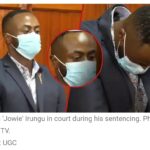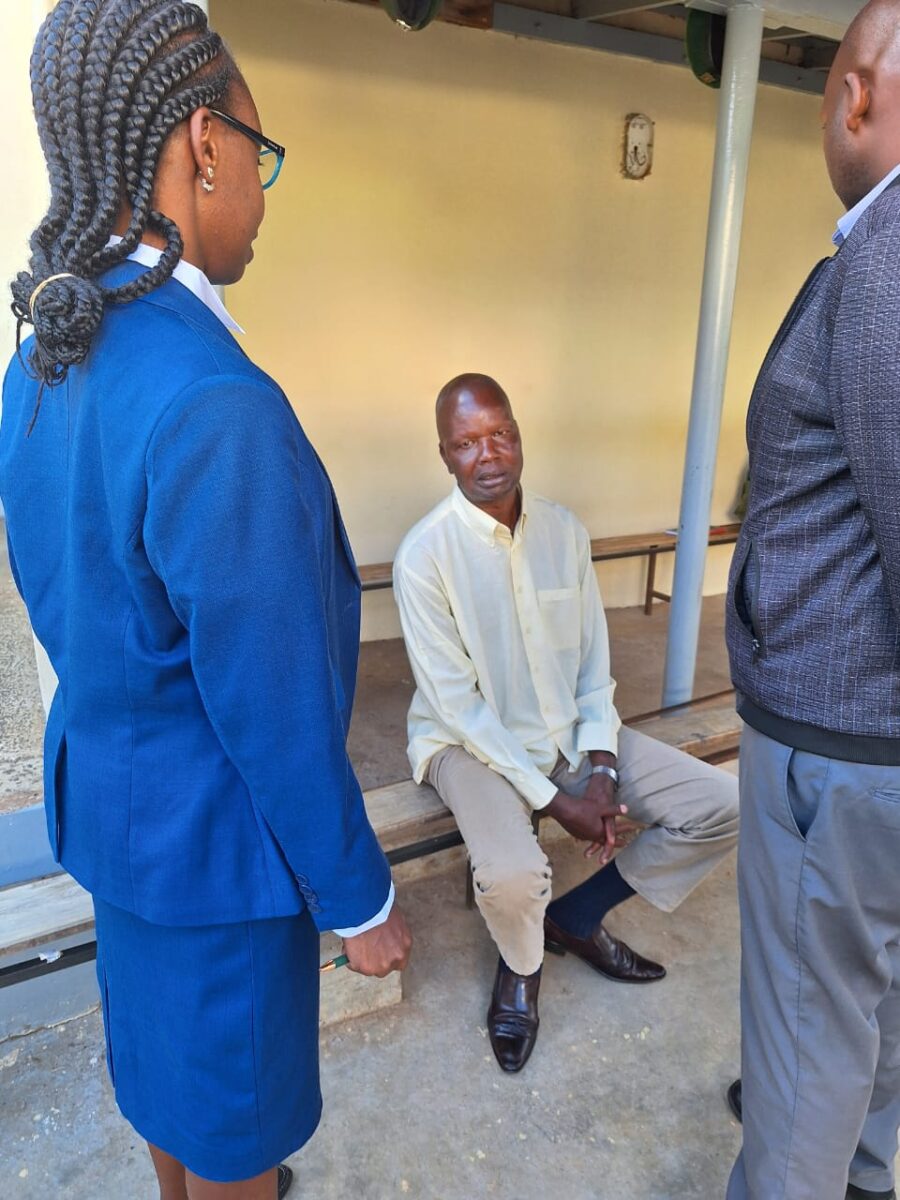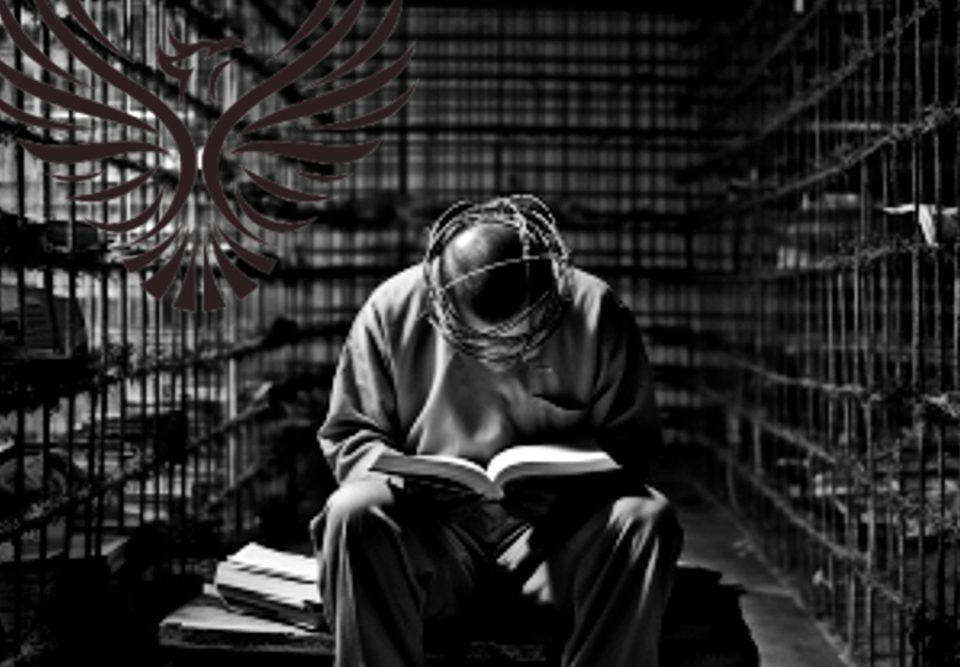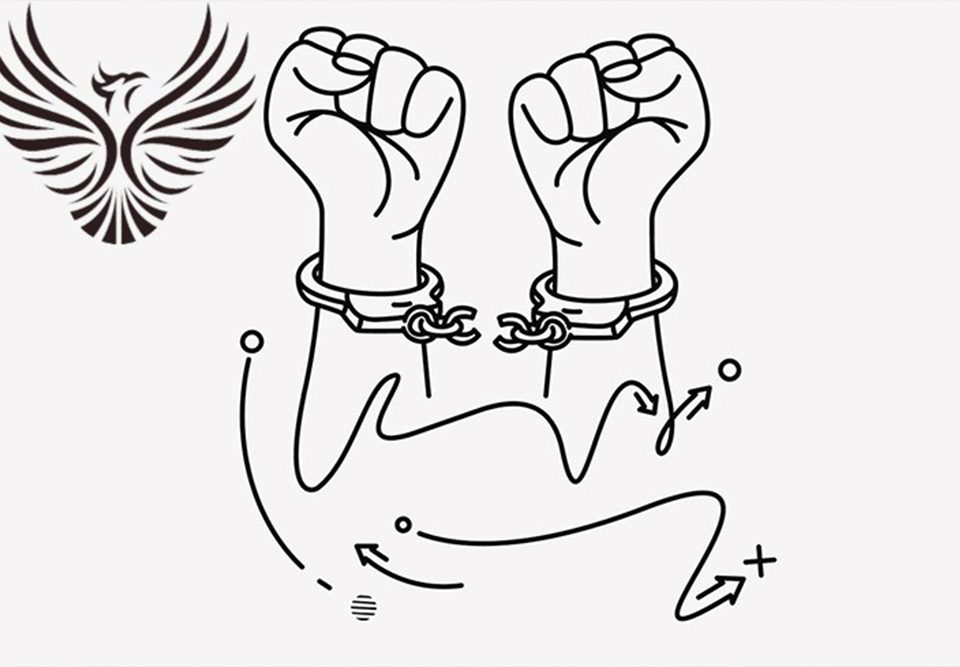
The Effect of Media Coverage on the Jowie Case: A Review of the High-Profile Murder Trial in Kenya
March 15, 2024
Empowering Second Chances: The Journey of Philip Bor
June 18, 2024Empowering Justice, Advocating for Rehabilitation, and Redemption in Mental Health Cases
In a momentous turn of events, justice has prevailed after decades of wrongful imprisonment for Mr. Bor Philip, who was convicted under the ‘guilty but insane’ verdict. His impending release marks a triumph for empowerment, rehabilitation, and redemption in mental health cases.
Reflecting on the journey that led to this pivotal moment, I am reminded of our encounter with Mr. Bor during a visit to death row inmates at the Eldoret Main Prison in October 2022. Despite not being on death row himself, Mr. Bor’s story resonated deeply with us, igniting a fervent determination to seek justice on his behalf.
Mr. Bor recounted to us that on 26th February 1988, he had been recouping from a severe case of cerebral malaria for which he had obtained treatment. As he was resting, and deep in sleep, a neighbor woke him from his slumber, and being startled, he hit the neighbour, whereby he later succumbed. He was arrested and taken to Lessos Police Station, where he indicates that he was questioned. Because of his state of mind, he could not respond to the issues being put to him adequately, and he states that as a result of this, he was thoroughly beaten. He further indicates that he did not record a statement. He was taken to Eldoret Moi Teaching and Refferal Hospital for treatment of the injuries sustained during questioning and later presented in court for plea on 3rd March 1988.
Found guilty but insane
On 7th July, 1989, Mr. Bor was found guilty of murder but insane by Hon. Justice D.K.S Aganya in Eldoret HCCR No.3 of 1989, after having being charged with the offence of murder contrary to Section 203 as read with Section 204 of the Penal Code Cap.63 of the Laws of Kenya. It was therefore ordered that the Mr. Bor be detained at the pleasure of His Excellency the President, and he has since been detained at the President’s pleasure for over 34 years, during the
tenure of four (4) presidents. During that time, Mr. Bor languished in prison, enduring hardships and battling a system that failed to recognize his mental health challenges. Despite efforts to appeal his conviction and seek clemency, bureaucratic hurdles and legal complexities impeded his path to justice.
Upon his sentence, Mr. Bor was imprisoned at the Nairobi Kamiti Prison. He was severely sick and was referred to Kenyatta Hospital for treatment of pneumonia where he indicates that he was treated for one year up to August or September 1990. Upon feeling better, he embarked, in 1991 with his father’s assistance, to obtain his file at Eldoret and Nakuru Court registries to appeal, but to no avail. He served at Kamiti Prison from 1989 to 2009, at Nyeri Main Prison from 2009 to 2010, and at the Eldoret Main Prison from 2010 to date. He filed a petition at Eldoret HCCR PET No.3 of 2019, which the Center for Legal Support and Inmate Rehabilitation (CESLIR) withdrew, and filed a fresh petition before the Honorable High Court at Eldoret. It is also noteworthy, that during his prison term, Mr. Bor has petitioned the Power of Mercy Advisory Committee for pardon but the said procedure, which is shrouded in mystery –at least for the inmates– was not successful.
The Eldoret High Court MISC. CR. PET. No. E045 of 2023 sought the following orders;
1) A declaration that section 166 of the CPC contravenes Art. 50 (2) (b) and 160 of the Constitution;
2) A review of the conviction of guilty but insane to be replaced with a finding of not guilty by reason of insanity;
3) An order that the petitioner be subjected to mental health reevaluation and thereafter released from custody if found to be free of a mental infirmity;
4) An order that the 2nd Respondent initiates the process of amending section 166 of the CPC; and
5) Any further orders, writs, directions as the court may deem appropriate.
It is noteworthy that the 1st Respondent, the Office of the Director of Public Prosecution (ODPP) being represented by Learned State Counsel, Mr. Mugun, did not oppose our application but recommended that Mr. Bor be subjected to a further mental assessment review in a facility other than Moi Teaching & Referral Hospital. If he is found to be mentally stable and no longer in a position to harm himself and society, then he should be released forthwith. The 2nd Respondent, the Attorney General, neither entered appearance nor filed response to our petition.
Analysis and decision of the Court
The court ruled that Section 166 of the Criminal Procedure Code (CPC) is unconstitutional and based its arguments on the separation of powers and fair trial principles. It also relied on Kenyan legal resources to bolster its reasoning. The court declared that Section 166 of the CPC violates the Kenyan Constitution’s Bill of Rights because it grants the President the authority to detain individuals found guilty but insane. The court agreed with our reasoning that this infringes on the separation of powers doctrine by assigning judicial functions (sentencing) to the President (executive branch). Additionally, the court agreed that the said provision breaches the right to a fair trial as detention is indefinite and not subject to review by a court. The court further agreed with us that this contravenes the Constitutional right to equality and freedom from discrimination (Article 27); human dignity (Article 28); freedom and security of person (Article 29); freedom from slavery, servitude and forced labour (Article 30); fair administrative justice (Article 47); access to justice (Article 48); rights of an arrested person (Article 49); right to fair hearing (Article 50); and rights of a person detained, held in custody or imprisoned (Article 51).
At paragraph 34 of the Court’s judgment, Nyakundi, J. stated that the impugned provisions of Section 166 of the CPC are in breach of the doctrine of separation of powers and therefore, the same are unconstitutional. The Court further discussed the issue of the cogence of the presumption of innocence in a criminal case. The court observed that a person is not generally liable to be found guilty or convicted of either non-serious or serious crime where the prohibited result was not only unintended but also unforeseen. The court held that Mens Rea (malice aforethought) was therefore considered the core of both procedural and substantive criminal justice. The court therefore held that it was unfair, in the first place to put Mr. Bor through trial, since he was of unsound mind when committing the crime and during trial. It held that, ‘a finding of guilty but insane is ironic as the fact that he is insane would mean that he does not have the capacity to understand the charge sufficiently in order to answer to it. It follows that putting such a person through a hearing is a breach of his constitutional rights.’
The court further faulted the Power of Mercy Advisory Committee (POMAC) for not taking advantage of its powers as envisaged under Article of 133 of the Constitution to uphold the Bill of Rights. The court was of the opinion that the POMAC should have wielded its constitutional mandate to come to the aid of Mr. Bor who had been prosecuted, found guilty and convicted for the offence of murder which he committed when he suffered from mental illness and did not possess the necessary Mens Rea to commit the crime.
The upshot of the foregoing is that the court entered judgment in favour of the Petitioner (Mr. Bor) in the following terms:
- Section 166 of the CPC contravenes Art. 50 (2)(b) and 160 of the Constitution.
- The conviction of guilty but insane is hereby replaced with a finding of not guilty by reason of insanity.
- The petitioner be subjected to mental health re-evaluation and thereafter released from custody if found to be free of a mental infirmity.

Conclusion
In the case at hand, the petitioner sought to uphold fundamental principles of justice and fairness within the criminal justice system. The presumption of innocence until proven guilty is a cornerstone of legal proceedings, ensuring that individuals are not unjustly deprived of their liberty based on mere allegations. This principle holds particular significance in cases where mental health issues are a factor, as it underscores the importance of ensuring a fair trial and protecting the rights of an accused person with a mental infirmity.
The right to a fair trial is enshrined in various international human rights instruments and national constitutions, guaranteeing individuals the right to a fair and impartial hearing before an independent and impartial tribunal. Kenya’s Constitution acquiesces to this under Article 2 (5) provides that the ‘general rules of international law shall form part of the law of Kenya’ and Article 2 (6) which provides that ‘any treaty or convention ratified by Kenya shall form part of the law of Kenya under this Constitution.’ Therefore, in cases involving mental health, the right to a fair trial ought to take on added importance, as individuals may require specialized support and accommodations to effectively participate in their defense.
The role of mental health in the criminal justice system cannot be overstated. Mental health issues can significantly impact an individual’s ability to respond to investigative officers’ questions, understand the charges against them, communicate with legal counsel, and participate meaningfully in legal proceedings. It is essential for the courts to consider the mental health of defendants and ensure that their rights are protected throughout the legal process.
Overall, by declaring Section 166 of the CPC unconstitutional, the court affirmed its commitment to upholding the principles of justice, fairness, and human rights for all individuals, regardless of their mental health status.
By Anne Munyua,
info@celsir-africa.org | annemunyua@omg.co.ke | (https://twitter.com/MurugiMunyua)
Executive Director
Center for Legal Support and Inmate Rehabilitation (CELSIR)



